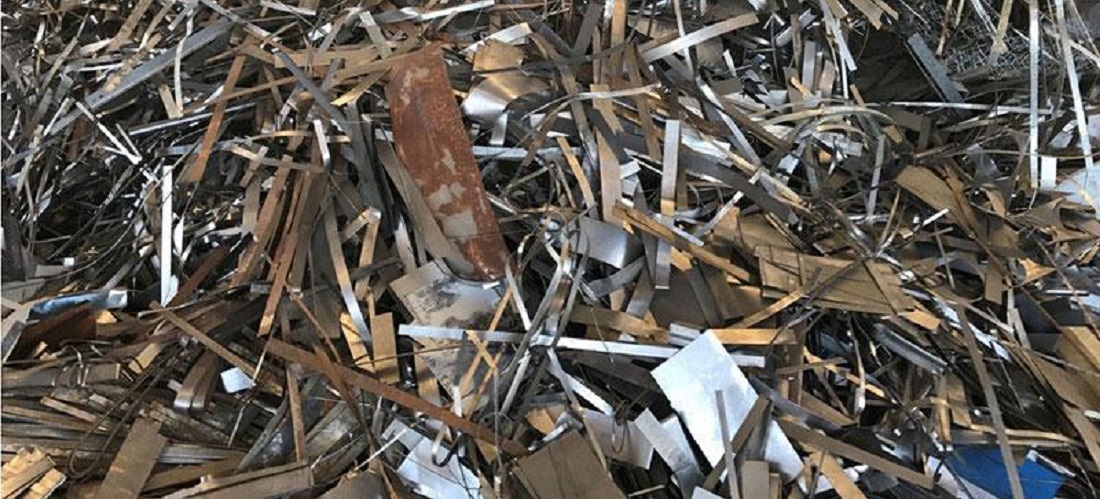
Ferrous Scrap: Exports from Brazil grow 153% in September
Oct, 18, 2023 Posted by Gabriel MalheirosWeek 202340
According to data from the Ministry of Economy, Secex, exports of ferrous scrap reached 98,325 tonnes in September 2023, marking a 153% increase compared to the same month in 2022 when it stood at 38,859 tons. This represents the second-highest monthly volume of ferrous scrap exports since frequent exports of excess ferrous scrap began. Only May 2016, with 103,440 tons, surpassed the exports in September.
In the YTD figures up to September 2023, foreign sales reached 574,818 tonnes, reflecting an 87.3% increase when compared to the same period in 2022, which amounted to 306,837 tons. Clineu Alvarenga, President of the National Institute of Recycling (Inesfa), expressed concern, stating, “The situation is worrying, with low demand for scrap by steel mills, which are also grappling with declining steel sales.” The institute anticipates that export figures will remain high in the last quarter of the year. Alvarenga added, “The economy has been slow to recover, and there is low steel consumption in the automotive and construction industries, even with the GDP rebound, mainly driven by the services sector.”
Inesfa’s assessment indicates that the situation is adverse not only for iron and steel recycling but also for the paper scrap sector, where industries are increasingly opting for virgin pulp, as well as in the plastics industry where virgin materials have become more cost-effective than recycled ones. The glass sector is also facing stagnating prices. Alvarenga stated, “All operational costs have risen, and input prices have fallen, resulting in very low margins in all segments. This, in turn, affects the income of scavengers, who are more than one million people relying on collection work for their livelihood.”
Ferrous Scrap Exports | Jan 2019 – Aug 2023 | TEU
Source: DataLiner (click here to request a demo)
During the Waste Expo Brazil held in São Paulo last week, entrepreneurs from the recycling chain’s collection, processing, and commercialization sectors called for the reinstatement of the PIS and Cofins tax exemptions on the sale of recyclable materials to manufacturing industries. The Brazilian Supreme Federal Court (STF) repealed this exemption in a 2021 ruling, which was established in the “Lei do Bem” (Good Law), in effect for 15 years. With the STF’s decision, recycling companies and cooperatives that trade plastic, paper, glass, iron or steel, aluminum, and other waste or scraps will be required to pay taxes (3.65% or 9.25%) when selling to industries, with no guarantee of a price hike. This measure will also discourage material collection by scavengers, colloquially known as “cartoneros.” The STF’s decision, from a fiscal perspective, equates recycling with extractive industries and directly impacts scavengers, who are responsible for collecting materials, leading to increased pollution in cities.
Aline Sousa, President of Centcoop, argued that the government should not overlook the significance of scavengers as tools for social inclusion, economic contribution to states and municipalities, and the undeniable environmental work they perform. She stated, “Scavengers need the income generation provided by their activities. The industry that consumes recyclable inputs will stop buying from cooperatives as they need the fiscal benefits, otherwise, they will turn to other sources of inputs.”
There are proposals being discussed in the Supreme Federal Court (STF) under Minister Dias Toffoli’s initiative, which suggests exemptions for PIS and Cofins and a 9.25% tax credit for the industry. Rodrigo Petry, legal consultant at Inesfa, stated, “This path promotes strengthening the chain, encourages formalization of the sector, generates more jobs, reduces tax evasion, and brings competitive advantages to recycled materials in line with OECD recommendations.” Of all the waste produced in Brazil, 30% comprises paper, cardboard, glass, plastic, metal, and aluminum, which, if reused, could generate around BRL 14 billion annually and half a million jobs in the collection, separation, and recovery stages of recyclable fractions.
Source: Brasil Mineral
To the read the original report, please visit: https://brasil61.com/n/sucata-ferrosa-exportacoes-crescem-153-em-setembro-mine230514
-
Economy
Mar, 24, 2023
0
China buys 70% of soybeans and 63% of iron ore exported by Brazil
-
Ports and Terminals
May, 24, 2020
0
Port of Ilhéus resumes its handling of soy shipments
-
Ores
Sep, 13, 2019
0
Vale discontinues part of operations at Brucutu mine
-
Other Cargo
Dec, 27, 2021
0
Producers offer cotton to Iran in exchange for fertilizers


